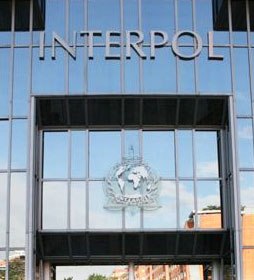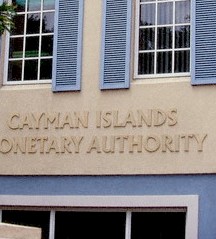Archive for November 16th, 2009

Interpol conference to boost intelligence sharing
 (CNS): Since the guns and drugs in Cayman didn’t originate on the islands, sharing information between regional law enforcement agencies is a key part of fighting crime, the governor said on Monday during his opening remarks at a regional Interpol conference being held in the Cayman Islands this week. Stuart Jack said that most serious criminal activity affects more than one country so it was vital that the region worked together to improve how information was shared.
(CNS): Since the guns and drugs in Cayman didn’t originate on the islands, sharing information between regional law enforcement agencies is a key part of fighting crime, the governor said on Monday during his opening remarks at a regional Interpol conference being held in the Cayman Islands this week. Stuart Jack said that most serious criminal activity affects more than one country so it was vital that the region worked together to improve how information was shared.
The four day 2009 Interpol Caribbean Regional Training Conference at the Grand Cayman Marriott Beach Resort is being hosted by the RCIPS for the first time. Bringing together delegates from twenty countries across the Caribbean region, the RCIPS said the aim was to continue to strengthen the joint venture and working relationship between the Cayman Islands law enforcement community and Interpol (International Criminal Police Organization).
Police Commissioner David Baines said he hoped the conference would provide the opportunity to share knowledge and experience as well as develop relationships across the region. He also spoke about the need to standardize how information is gathered and retained as well as using it to best effect. Baines also observed how the countries had to deal with each other’s laws and bureaucracies, which could slow them down and create loopholes that criminals could exploit.
He said that developments in technology, communications and ease of movement had benefitted mankind but it had also offered opportunity for crime. “Never before has the need for sharing information been more critical,” he said, pointing out how borders were easily exploited by the criminally inclined.
The challenges presented by the criminal use of technology and communication will be a point of focus for the conference, and the Interpol experts said they would spend the next four days encouraging greater exchange of information among the countries in the region who probably shared considerable crime problems.
Deputy Premier Juliana O’Conor-Conolly also spoke about how technology and communications had opened the world for criminal exploitation. She said that with the greater freedom of movement between countries because of trade and cooperation between governments, came greater movement of criminals. O’Connor-Connolly also said that the internet and social networking sites allowed criminals to communicate at great speed but that law enforcement agencies needed to do the same.
“We need to be better at policing our borders, detaining criminals and assisting each other,” she said. “This training is desperately needed.”

Family hid from robbers
(CNS): Updated Tuesday 10:30am. Police have now confirmed that a home invasion did take place around 12:45pm yesterday (Monday 16 November) at a residence in the Snug Harbour area. CNS understands, however, that the location was Kings Court, Britannia. Police said that no shots were fired in the incident but an armed response unit was dispatched to the location, according to news footage. Police were unable to offer much information on this latest daylight robbery but said two men smashed a window to gain entry to a house and made off with an undisclosed sum of cash. Other reports to CNS suggest that the family residing in the property at the time hid from the intruders in the bathroom and no one was hurt.
It is still not known if the victims were island residents or tourists. Police said the incident is currently being investigated by officers of the RCIPS Criminal Investigation Department.
Anyone with information about crime taking place in the Cayman Islands should contact their local police station or Crime Stoppers on 800-8477 (TIPS). All persons calling Crime Stoppers remain anonymous, and are eligible for a reward of up to $1000, should their information lead to an arrest or recovery of property/drugs.

CIMA issues warning over unlicensed offshore bank
 (CNS): An offshore financial institution firm claiming to have established a new branch office in the Cayman Islands is not licensed to do business in the jurisdiction, the Cayman Islands Monetary Authority has said. Offshore Banking International (OBI) has issued a press release stating that it reached a new company record last month by opening a branch office in the Cayman Islands, bringing its roster of banking centres to 21 locations. However, CIMA said on Monday morning it does not hold a licence to conduct banking business in or from the Cayman Islands or any other financial services business and it does not know where this office is supposed to be.
(CNS): An offshore financial institution firm claiming to have established a new branch office in the Cayman Islands is not licensed to do business in the jurisdiction, the Cayman Islands Monetary Authority has said. Offshore Banking International (OBI) has issued a press release stating that it reached a new company record last month by opening a branch office in the Cayman Islands, bringing its roster of banking centres to 21 locations. However, CIMA said on Monday morning it does not hold a licence to conduct banking business in or from the Cayman Islands or any other financial services business and it does not know where this office is supposed to be.
CIMA confirmed to CNS that the firm has made no application to the regulator, which is now investigating the claims made in the company’s recent public statement.
“This entity does not hold a licence from the Authority to conduct banking business in or from the Cayman Islands as is required by the Banking and Trust Companies La,” CIMA stated. “OBI is not licensed or registered by CIMA to conduct any other financial services business regulated in the Cayman Islands. The public is therefore advised to exercise caution in dealing with this entity.”
OBI claimed it had established a presence in the Cayman Islands because the jurisdiction had the offshore registration process down to an art.
"We started OBI with the goal of highlighting the world’s lesser known offshore banking capitals," said OBI Richard Collins in a release, which has been circulated on a number of PR wires. "But the Cayman Islands continue to be one of the offshore banking world’s most popular destinations, and we want to give our clients every possible option for their investment portfolios.”
The release said that while OBI is familiar with Caribbean offshore banking centres, it had only added Cayman recently and Collins said he was impressed by the efficiency of the jurisdiction’s banking community. "I’ve enjoyed developing relationships with our Pacific-based offshore jurisdictions and working through the process," Collins said. "But the Caymans have it down to an art – our clients can complete the offshore registration process in 24 hours."
OBI said the new branch was established to give easy access to new depositors. "The technology is in place that will allow many people to manage their offshore banking from the privacy of their own home," Collins said. "With everything from document verification to electronic deposits becoming more automated and fraud-savvy, we’re able to offer our clients a wide array of services safely and securely."
The firm, however, did not say where this new office was based or why it had not obtained a licence to do business in the islands. CNS has contacted Collins and is awaiting a response.

Holiday season will bring fraudsters, cops warn
(CNS): The Royal Cayman Islands Police Service (RCIPS) is warning the local business community, as well as the public at large, to be vigilant when it comes to fraudsters in the run up to Christmas. Police said that officers from the West Bay Police Station, along with representatives from the RCIPS Financial Crimes Unit (FCU), will be holding a Fraud Prevention presentation on Tuesday 8 December to offer advice on how to beat the con men. The special meeting will take place at the John A. Cumber Primary School, West Bay, 6:30pm – 8pm all are welcome and encouraged to attend.
Anyone with information about crime taking place in the Cayman Islands should contact their local police station or Crime Stoppers on 800-8477 (TIPS). All persons calling Crime Stoppers remain anonymous, and are eligible for a reward of up to $1000, should their information lead to an arrest or recovery of property/drugs.

Stats reveal economic woes
 (CNS): Everything from work permits to house sales suffered a serious decline in the Cayman Islands during the first half of 2009 according to the Economic and Statistics Office. The Semi Annual Report released on Friday reveals just how badly the global economic crisis affected the local economy from January to June this year. New company registration fell by 46.2%, imports declined by 13%, the total value of property transfers slumped by 43.3%, bank and trust company registrations fell by 3.9% and mutual funds licenses dropped by 2.1%. Tourism was also in the doldrums with air arrivals falling by 13.3%, while cruise passengers decreased by 6.1%.
(CNS): Everything from work permits to house sales suffered a serious decline in the Cayman Islands during the first half of 2009 according to the Economic and Statistics Office. The Semi Annual Report released on Friday reveals just how badly the global economic crisis affected the local economy from January to June this year. New company registration fell by 46.2%, imports declined by 13%, the total value of property transfers slumped by 43.3%, bank and trust company registrations fell by 3.9% and mutual funds licenses dropped by 2.1%. Tourism was also in the doldrums with air arrivals falling by 13.3%, while cruise passengers decreased by 6.1%.
Stock exchange listings contracted by 16.1% and stock market capitalization for specialist debt also fell. Total value of building permits plummeted by 17.0% to $175.6 million. Many of the government’s revenue generating areas were severely affected including work permits which fell by 7.6%, largely on account of declines in construction, financial services and tourism related services, the ESO said. The total value of work permits plummeted by 17%, the highest reduction in terms of value was in managerial and administrative permits but the highest number of permits lost were in the construction industry.
One area of increase was credit to the private sector from the commercial banks, which grew by 21.7% as Cayman’s local businesses became more indebted and as the cost of borrowing declined. The fear of recession, however, made some people put away cash. While there was a reduction in non-resident bank deposits, the banking sector’s total assets grew by 14.7% as the net domestic assets expanded with Caymanians clearly keen to hold on to what they could as they saw fiscal storm clouds gathering.
Overall, the ESO said it now expects that Cayman’s economic outlook for 2009 is a contraction of almost 6%. “The overall growth for 2009 is now projected at -5.8% as recessionary conditions in source markets impact the domestic economy,” the ESO report revealed.
One of the most notable impacts the worldwide economic crisis had on the Cayman economy was the decline in the number of new company registrations, which fell by a record 46.2% compared to this time last year. “The fall was spread across all types of registration which may be associated with the unprecedented shrinking of business activity among the advanced economies,” the report stated.
The statistics reveal just how hard hit government revenue was by the economic crisis in a relatively short and sudden period of time. The report reveals that, as government expenditure grew by 10.4% its total revenue contracted by 13.7%. This also confirms that during the period the government had asked the civil service to cut expenditure by 6%, public sector spending was increasing by more than 10% Personnel costs in the civil service expanded to $123.4 million, more than 8.3% compared to a year ago, despite a 3.8% reduction in the number of personnel in the civil service to 3,756 as at end of June 2009.
To make matters worse, despite the recessionary indicators, while the overall consumer price index fell by 0.3% food prices still increased. The average price of food items went up by 5% as all food categories, except dairy products and fats increased in price. The highest increases were recorded for fruits and vegetables (16.2%), sugar products (8.4%) and bread and cereal (7.4%). Household equipment, personal goods and services, education and medical services all went up.
Minister says EIA is not reduced, just changed
(CNS): Despite the fact that the director of the Department of the Environment listed more than eleven major areas that will not now be examined in the new Environmental Impact Assessment for the port development, Mark Scotland said he preferred to say that the ToR have been changed rather than reduced. The minister with responsibility for the Environment told News 27 that, while the DoE has a say in the drafting of the EIA terms of reference for the new cruise berthing facility in George Town, the final decision would be a joint effort between the developer, DECCO and the ministry.
“We have heard in the news lately that the terms of reference and scope of it have been reduced, but when we say reduced I’d rather say its been changed. That’s because the terms of reference were based on another project,” Scotland told the television station.
Last week Gina Ebanks-Petrie, the director of the environment, revealed to CNS the dramatic reductions or, as Scotland said, changes that have been made to the new Terms of Reference that were presented to her department recently.
Although the new proposed development focuses primarily on cruise berthing and not cargo, the development will still include dramatic changes to the marine and upside environment of the George Town Harbour, as will as a significant impact on the general downtown area of the country’s capital. However, as revealed by Ebanks-Petrie, a number of crucial environmental issues will no longer be considered, such as the damage to marine life in the harbour as well as the increased exposure of the downtown area to flooding.
The previous ToR were drawn up by the DoE and were based on extensive consultation with stakeholders and the public at large. All of the major issues, concerns and potential negative impacts on the natural, human, built and socio-economic environment were included in the study so that a proper cost benefit against environmental damage could be assessed. The idea of the EIA was also to ensure that the negative impacts were fully understood and could therefore be mitigated if not entirely prevented.
Scotland has said, however, that he does not know if the public will be consulted on the ToR which will now guide the EIA for this development.